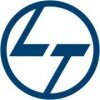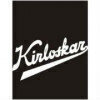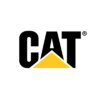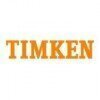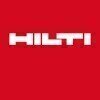
i
Cummins
Proud winner of ABECA 2024 - AmbitionBox Employee Choice Awards
134 Cummins Jobs

Supply Chain Planner
4-7 years
₹ 5.61 - 11L/yr (AmbitionBox estimate)
Pune
1 vacancy
Supply Chain Planner
Cummins
posted 20d ago
Job Role Insights
Flexible timing
Key skills for the job
Job Description
GPP Database Link
Job Summary:
To plan and maintain daily Supply Chain operations in one or more functional areas such as materials, production, inventory, logistics, customer service, demand management or order fulfillment. Ensures internal and external customers' expectations and requirements are met.
Key Responsibilities:
Develop planning system strategies to improve signals across the supply chain Monitor and adjust parameters in the planning system. Use common processes tools, and information systems. Analyze and interpret Key Performance Indicators to identify areas for improvement and action plans. Execute the daily operational planning process within a specified functional area. Identify potential supply chain failures as part of the planning process and mitigate associated risks Work closely with stakeholders - internal and/or external to develop short term tactical improvements. Use the planning system to drive consistent planning signals across the supply chain Participate in functional process improvement teams
Experience :
- 4-7 years (Material Planning / Procurement/Production planning) (Must Have)
Handling Minimum 15-20 suppliers /300 + parts worked in Manufacturing Plant material planning (Nice to have) - Engineering Degree (Must have)
Skills Functional :
- Material Planning / Supplier Procurement (Must have)
- Manages all aspects of the material plan based on requirements across the regional/global network
- Manages accuracy of aggregate supplier schedules onto suppliers
- Actively manage Supplier performance, identifying any aspect of suboptimal performance, driving accountability for improvement actions
- Know-how of Material Availability/Shortage issues (Must have)
- Actively manage Supplier commitment
- Ensure material is made available through LT into the region
- Manage exceptions across the network
- Execute RCA on KPI misses and ensure these are converted into SMART plans (Must have)
- Worked on Inventory Reduction (Preferred)
- Knows use of Safety stocks (Preferred)
- Allocation Planning/Constraint planning (Nice to have)
- System use (Oracle/SAP) (Nice to have)
Enterprise :
- Good English Communications skills (Both speaking and writing)
- Learning attitude (Must have learned something new in recent past) (Must have)
- Prioritization (Working under pressure) (Must have)
- EMEA Shift
Competencies:
Communicates effectively - Developing and delivering multi-mode communications that convey a clear understanding of the unique needs of different audiences.
Customer focus - Building strong customer relationships and delivering customer-centric solutions.
Drives results - Consistently achieving results, even under tough circumstances.
Global perspective - Taking a broad view when approaching issues, using a global lens.
Manages complexity - Making sense of complex, high quantity, and sometimes contradictory information to effectively solve problems.
Optimizes work processes - Knowing the most effective and efficient processes to get things done, with a focus on continuous improvement.
Materials Planning System Utilization - Uses the materials planning system to manage supply and demand plans taking long-term corrective action on exception messages and other alerts based on root cause analysis; occasionally refers to adhoc tools such as Excel, Access, TOAD, OMS, etc. in performing problem solving, while leveraging the materials planning system as the primary tool in day-to-day operations.
Part Change Control Management - Evaluates and implements engineering change request (obsolescence, supersessions, new part release, etc. ) to meet customer delivery requirements while minimizing excess and obsolete inventory.
Plan for Every Part (PFEP) - Uses PFEP in planning, designing, and management of systems and processes within a facility to ensure delivery of right part at the right time in the right quantity to the right place, which in turn guarantees smooth operations; applies PFEP principles on the end to end supply chain with particular attention to the relationships between master data management, materials planning parameters, engineered material flows, transport management, and warehouse management.
Master Supply Scheduling - Establishes and maintains a valid Master Production Schedule for a family of products, which meets customer s expectations and requirements while maximizing operational efficiency; validates procurement scheduling, production scheduling, and replenishment planning are aligned to manufacturing and assembly assets for conversion.
Material Planning - Uses advanced tools (e. g. Advanced Planning Command Centre, Business Intelligence (BI) Dashboards etc. ) to take a decision related to parts availability, inventory optimization and root cause analysis.
Materials KPI Management - Operates in relation to recent or historical outputs as compared to expectations of the organization to determine next steps to drive improvement; assesses gaps to the supply chain performance against the expectation of achieving target deliverables; interprets KPIs to understand end-customer impact; strategically balances trade-offs to influence one KPI while minimizing the impact to others.
Values differences - Recognizing the value that different perspectives and cultures bring to an organization.
Education, Licenses, Certifications:
College, university, or equivalent degree required.
This position may require licensing for compliance with export controls or sanctions regulations.
Experience:
Minimal to intermediate level of experience required
Employment Type: Full Time, Permanent
Read full job descriptionPrepare for Supply Chain Planner roles with real interview advice
People are getting interviews at Cummins through
People are getting interviews through
(based on 155 Cummins interviews) What people at Cummins are saying
Rating based on 18 Supply Chain Planner
reviews
Employ friendly culture
No dislike
Read 18 reviewsSupply Chain Planner salary at Cummins

 Anonymous · Procurement & Purchase
in Pune
Anonymous · Procurement & Purchase
in Pune









